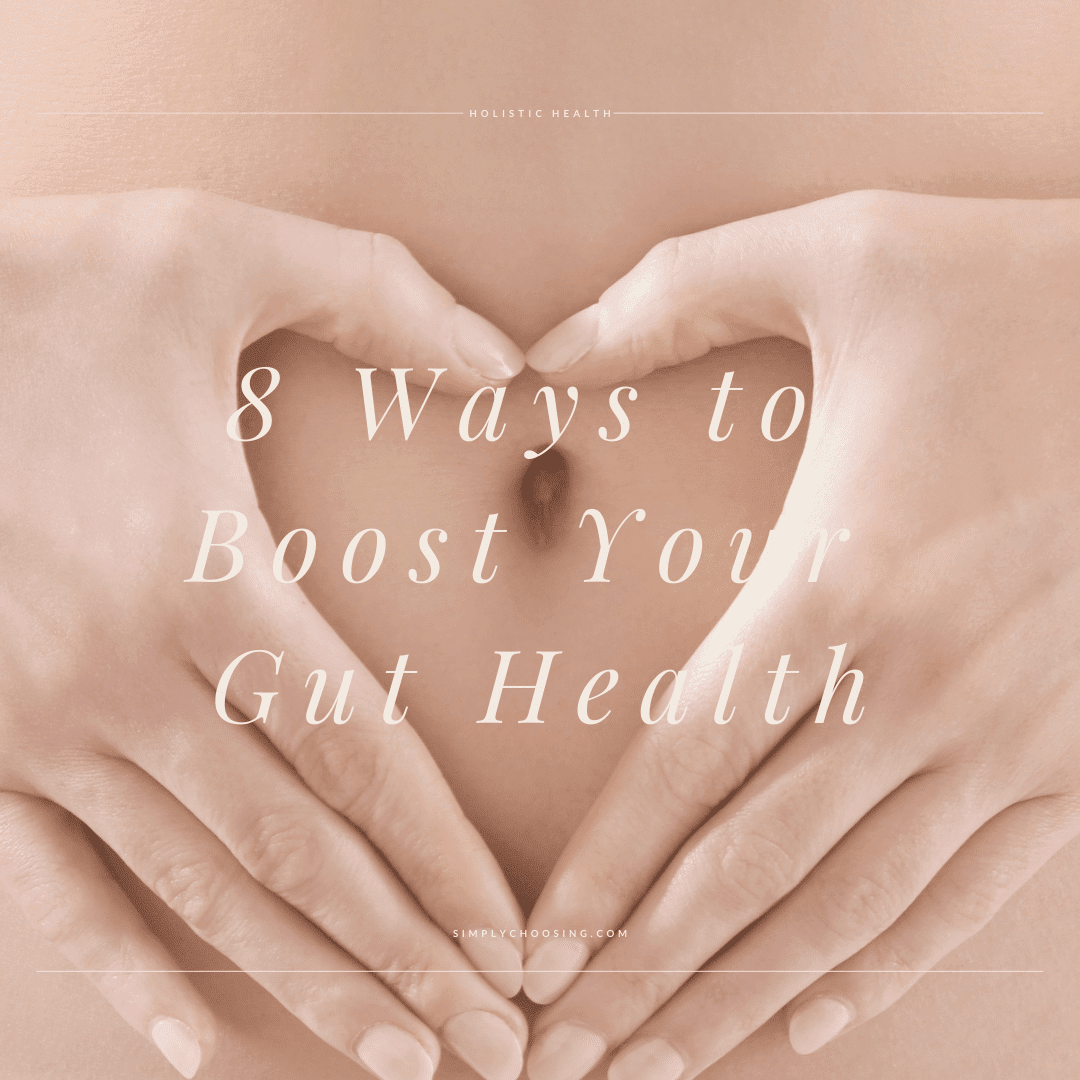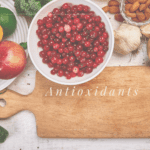What will you get from this blogpost:
- A simple guide to boost your gut health right now, right here.
Your gut is a fascinating organ. From digesting your food to eliminating toxins from your body, it does it all. The health of your gut is an enormously important part of your overall health. If you take care of it, you will have nothing but benefits. Not just for your gut, but every aspect of your life.
In the following, you’ll find 8 ways to boost your gut health. These tips I’ve compiled for you will help you feel healthier overall and are very easy to implement into your life. But that’s only true if you’re willing to take action.
A healthy, alkaline-rich diet

The alkaline-rich diet is also called the acid-alkaline diet.
It is based on the premise that each diet can change the pH value, i.e. the measure of the body’s acidity or alkalinity. The alkaline-rich diet, therefore, focuses on keeping the blood alkaline.
The pH value ranges from 0-14:
- Acidic: 0.0-6.9
- Neutral: 7.0
- Alkaline (basic): 7.1-14.0
Theoretically, an excess of both acids and bases in the body can be harmful. Our bodies indeed need both acids and bases to function properly, but as with everything else, the rule is: in moderation.
So, why only focus on an alkaline-rich diet?
If you look at our lifestyle today, it is almost impossible to have an excess of bases. The “modern” diet, on the other hand, allows us to accumulate many more acids in the body, in far too short a time for the body to break them down properly.
Think about it: when was the last time you ate a (veggie)-burger at a fast-food chain or the super-healthy convenience food from the supermarket?
When was the last time you drank your favorite soda or morning coffee with sugar and milk?
Yeah, I thought so. Most of you have done one or the other, right?
The so-called “modern” diet is full of processed foods. Especially dairy, eggs, meat, poultry, fish, grains, and alcohol. And these very foods are considered acidic.
An alkaline-rich diet, therefore, focuses primarily on foods that have a pH value above 7.0, in other words, an alkaline value. This includes food groups such as most fruits, vegetables, nuts, and legumes. Basically, anything that comes directly from Mother Earth.
As you can see, in the modern age, it is quite easy to quickly fill up the acid tank in your body. As a result, however, you likely have an excess of acids in your body.
An excess of acids can cause many diseases. Many of them are diseases that we have come to think of as “normal” over the years. However, if the body were not acidic, these diseases would not exist.
So the reason why an alkaline-rich diet is so important is that by eating more alkaline foods, you can “alkalize” your body, boost your gut health, and improve your overall health.
Rule of thumb
Eat enough green and colored vegetables, fresh fruits of all kinds, herbs, nuts, and omega-3 fatty acids such as chia seeds, hemp oil, or flax oil every day.
Drink water

The body of an adult human consists of up to 60% water.
This is also one of the reasons why it is recommended to drink at least 2.5 liters (8 glasses) of water every day. Some even recommend drinking at least 3 liters per day.
After all, we humans are built to excrete waste and toxins with our fluids. Be it through urine, bowel movements, sweat, or tears. What goes out must be replenished.
While it has not been scientifically proven that these exact 2.5 liters of water are necessary for the health of the body, it is important to stay hydrated.
Still water is important for flushing excess toxins and waste from the body. It relieves constipation, increases physical performance, and helps with headaches. In addition, still water improves brain function and your productivity, and among other things, helps treat kidney stones.
Bonus point: your skin will glow!
IMPORTANT: Please do not confuse still water with sparkling water, lemonade, tea, coffee, or other liquids. They do not have the same effect on the body as water.
Rule of thumb
Drink at least 2.5 liters of still water each day.
Avoid fatty convenience foods

I’ll say it again: focus on alkaline-rich, natural foods. This will boost your gut health, for sure.
- Fresh fruits and vegetables in rainbow colors
- Herbs and spices
- Nuts and seeds
- All types of legumes, including chickpeas, lentils, beans, and split peas
- Omega-3 fatty acids, such as hemp or flaxseed oil
Processed foods are full of unhealthy fats, unnatural sugars, preservatives, and other additives. You really don’t want these things in your body.
Just cut them out.
One step at a time.
Every day.
Not only your gut, but your entire body will thank you.
Rule of thumb
Ideally, eliminate all processed foods from your diet.
Superfoods

Although they have always existed, the term “superfoods” is fairly new.
Superfoods are nutrient-rich foods that are considered particularly beneficial to health and well-being. They cannot be categorized into a specific group of foods per se. Superfoods simply describes very healthy foods using a marketing term that is easy to sell, and, well, boost your gut health.
Superfoods contain a variety of nutrients, such as antioxidants, which are thought to protect against cancer, and healthy fats, which are supposed to prevent heart disease. They also contain fiber, which is believed to prevent diabetes and digestive problems, and phytochemicals, which can have numerous other health benefits.
Popular superfoods include:
- Blueberries
- Goji Berries
- Nuts and Seeds
- Sweet Potatoes
- Matcha
Rule of thumb
Eat or drink superfoods daily. This could be green smoothies, grass juices like wheatgrass, or almond milk.
Eliminate alcohol, nicotine, and caffeine

It’s no news that alcohol, nicotine, and caffeine can harm the body. Everyone is selling alternatives to products containing nicotine and caffeine. Everyone is trying to persuade their Hubby away from beer consumption. “It’s all bad, it’s all toxic!” – That’s what you hear, right?
Well, I’m sorry to disappoint you, but it’s true.
Alcohol
Alcohol is indeed one of the most toxic substances you can feed your body, especially your liver. Every time you consume alcohol, your liver has to work twice or three times as hard as it would without it. It is even worse if you have one or two drinks a day.
Excessive alcohol not only harms your liver, but in the long run, it can also increase your risk of cancer, heart disease, and other health conditions.
Nicotine
“Nicotine is one of the most addictive drugs around, which is why … even went as far as to compare a nicotine addiction to heroin addiction” (American Lung Association).
If that’s not reason enough to get off nicotine, I don’t know what is.
Nicotine is a naturally occurring chemical in the tobacco plant. Aside from being highly addictive, nicotine, when ingested, is one of the deadliest poisons of all.
Among other serious conditions, nicotine can contribute to strokes, is associated with a high risk of cancer, and even prevents young people’s brains from developing properly.
Caffeine
Caffeine occurs naturally in the plants we use to make coffee, tea, and chocolate. There is also synthetic caffeine that can be added to foods, drinks, and medications.
According to FDA scientists, caffeine can be part of a healthy diet, but only in moderation. It is reported that 400 milligrams per day (the equivalent of about four cups of coffee) has no dangerous, negative effects for an adult. However, there is wide variation in how sensitive people are to the effects of caffeine and how quickly it is metabolized.
Over-consumption of nicotine can lead to symptoms such as nervousness, insomnia, anxiety, rapid heartbeat, and digestive irritability.
Rule of thumb
Eliminate alcohol, nicotine, and caffeine as often as you can. Ideally, quit them altogether.
Gut cleanse and gut rebuild

Such an important topic that is truly underrated.
I could probably talk about it all day, but let’s keep it short.
80% of your immune system is in your gut. Yes, that’s right!
Now, imagine if 80% of your body never got cleansed. Ugh, I wouldn’t recommend that.
A gut cleanses, also known as colonic irrigation, is a way to cleanse your body from the inside, remove accumulated toxins from your colon and boost your gut health.
Colon irrigation doesn’t sound pleasant, but it can provide numerous health benefits, such as relieving constipation, helping with irregular bowel movements, curing allergies and acne, helping with depression, and preventing diseases such as colon cancer.
During a gut cleanse, the colon is flushed with fluid to remove waste. Usually, a professional colon hygienist performs the cleanse while you rest on a table.
However, there are ways to do it in the comfort of your own home. But we’ll talk about that another time.
A gut cleanse is a good idea if you have symptoms like bloating, constipation, diarrhea, fatigue, and bad skin. Of course, you don’t have to be sick to think about a gut cleanse, because even for healthy people, the sooner you do one, the better for your health.
While a colon cleanse is great, at the same time you need to make sure you rebuild your gut flora. After all, you are flushing everything out.
So make sure you are eating foods that are high in probiotics and prebiotics. Adding also natural supplements with probiotics and prebiotics can additionally support your gut flora.
Rule of thumb
If you are not familiar with gut cleanses, I recommend doing them only with a therapist. Even if you are healthy, it is recommended to do a gut cleanse and gut rebuild at least once a year.
Stress management

According to Dr. Emeran Mayer (The Mind-Gut Connection), the mind and the gut are intimately connected. This means that if you have a “gut feeling,” you’re not imagining things. This is also why the health of one has a huge impact on the health of the other.
Why do you think you get nauseous or have diarrhea when you are anxious? Or when you’re sad, you might go days without eating?
Stress and anxiety can trigger symptoms in the gut, but conversely, inflammation of the gut has also been linked to depression and other mental illnesses. If left untreated, it can eventually start a cycle, causing symptom after symptom.
Stress management is one way to reduce such symptoms. It is known to reduce inflammation in the gut and restructure the microbiome in such a way that many people experience life-changing improvements in their gut.
Bonus: When the mind and gut are healed, it has a domino effect. You’ll feel better all around. From head to toe.
Ways to manage stress
- Adjust your diet
- Learn diaphragmatic breathing techniques
- Practice gratitude daily
- Make meditation a habit
- Use exercise and yoga to relieve tension in your body
- Get enough sleep every night
- Take a long walk in nature
Rule of thumb
Learn new relaxation techniques that will help you regulate your stress. This can be anything from meditation to yoga or taking a walk in nature.
Daily exercise

Improving the health of your gut takes more than just your diet and stress management. Daily exercise not only helps lower stress levels and keep weight in check, but it also aids digestion.
It’s as simple as this: when you move your body, your gut moves too. Moving your gut, in turn, leads to better digestion.
There are other benefits, too. According to some studies, daily exercise has a positive impact on gut health. Exercise can promote the growth of microbes in the gut, which in turn reduces the risk of inflammatory diseases and type 2 diabetes.
Rule of thumb
Exercise is essential to your health and well-being. Move at least 30 minutes a day.
The health of your gut is of immense importance to how you feel day in and day out. These simple 8 ways to boost your gut health will mean worlds to your gut, I promise.







0 Comments